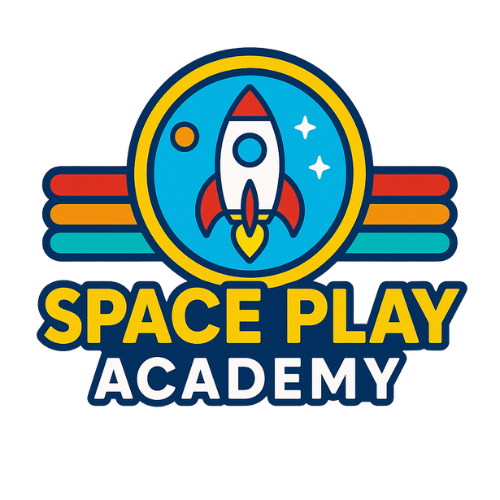Why Play Matters
The Screen Time Problem
Today’s children are facing unprecedented levels of screen exposure. The average child spends over 7 hours per day on screens, far exceeding the 1–2 hours recommended by pediatricians (AAP, 2020). This overexposure is linked to:
- Increased anxiety and attention issues
- Higher rates of childhood obesity
- Disrupted sleep and reduced real-world social interaction
The Power of Active Play
Active, physical play is essential to a child’s development. According to the CDC, just 60 minutes of movement per day improves:
- Muscle and bone strength
- Motor skill development
- Emotional regulation and mood
- Cognitive performance and school readiness
Indoor playgrounds like Space Play Academy provide a safe, clean, all-weather environment that encourages climbing, running, crawling, and sliding—all while building confidence and resilience.
Fostering Creativity Through Workshops
Beyond movement, structured play workshops offer vital opportunities for creative development. Research from the LEGO Foundation and Harvard University shows that guided creative play helps children:
- Develop problem-solving and emotional intelligence
- Enhance memory and language skills
- Strengthen brain architecture during key developmental years
Our programs like Galactic Creators (art & sensory), Adventures in Space (movement storytelling), and Mini Gymnastics: Cosmic Crawlers promote imagination, confidence, and early STEM interest.
Strengthening Family Bonds
When parents or caregivers participate in play, the benefits multiply. Programs like Parent-Child Aerobics: Fit Families and Little Astronauts Yoga are built to:
- Encourage parent-child connection
- Provide meaningful shared experiences
- Reduce parenting stress while improving family well-being
Studies show that active engagement between kids and caregivers leads to stronger emotional bonds, improved behavior, and higher learning outcomes (Ginsburg et al., 2007).
Building a Stronger Community
Space Play Academy isn’t just about play—it’s about creating a place where families connect. Regular participation in family-focused environments builds:
- Neighborhood resilience
- Social support networks
- A sense of belonging for children and adults alike
Research from Harvard’s Center on the Developing Child shows that consistent, positive interactions in safe, structured environments are one of the most effective ways to support lifelong health and success.
